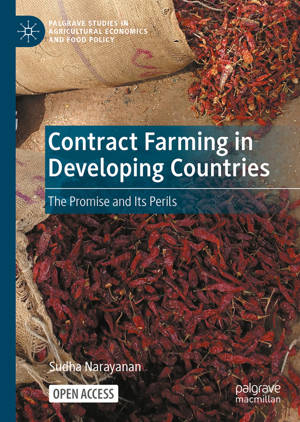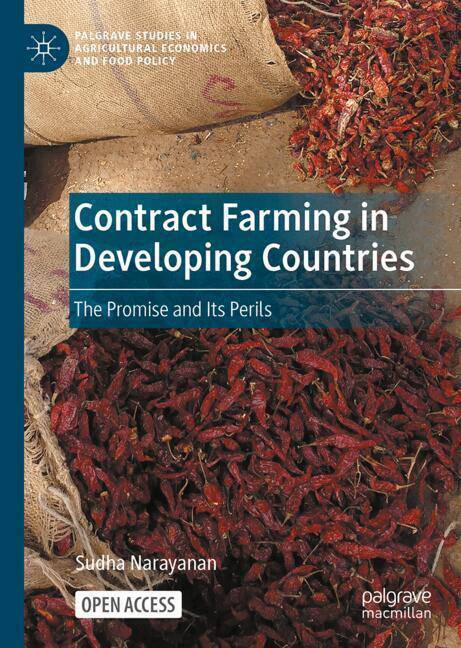
- Retrait gratuit dans votre magasin Club
- 7.000.000 titres dans notre catalogue
- Payer en toute sécurité
- Toujours un magasin près de chez vous
- Retrait gratuit dans votre magasin Club
- 7.000.0000 titres dans notre catalogue
- Payer en toute sécurité
- Toujours un magasin près de chez vous
Description
Contract farming is an institutional arrangement between farmers and businesses to produce and transact agricultural commodities at predetermined prices and conditions, and it has recently received a heightened amount of attention despite being a relatively old phenomenon. A new wave of agricultural industrialization and the emergence of large-scale food retailing in developing countries may be precipitating the unprecedented shift in favor of contract farming.
This open access book identifies the methodological differences across disciplines that have generated a false binary in discussions of contract farming. The author explains the importance of adopting a more integrated theoretical perspective, providing insights into the ways in which this can reconcile conflicting positions. Given the immense diversity of contracting schemes, commodities and contexts-as well as the substantial regional differences in contract farming experiences across a range of outcomes-a syncretic understanding of contract farming is essential to the evaluation of the promise and perils of contract farming. The resulting book proposes a way forward that is holistic in nature, framing contract farming within a comparative institutional analysis so that it can better accommodate multidisciplinary priorities.
Spécifications
Parties prenantes
- Auteur(s) :
- Editeur:
Contenu
- Nombre de pages :
- 284
- Langue:
- Anglais
- Collection :
Caractéristiques
- EAN:
- 9783031764868
- Date de parution :
- 19-03-25
- Format:
- Livre relié
- Format numérique:
- Genaaid
- Dimensions :
- 148 mm x 210 mm
- Poids :
- 521 g

Les avis
Nous publions uniquement les avis qui respectent les conditions requises. Consultez nos conditions pour les avis.






